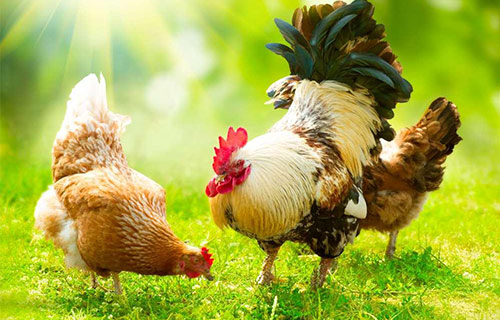Calcium is one of the important nutrients for laying hens with high yield and stability. If the intake of calcium is insufficient, not only the flocks are prone to cartilage, but also the quality of the eggshell and the rate of laying eggs. When the calcium content in the diet exceeds 4%, it will cause the indigestion to cause the chicken to be diarrhea or gout. It will also reduce the feed intake and egg production of the chicken, seriously affect its production performance and reduce the feeding efficiency. Therefore, in order to solve this contradiction, it is necessary to take scientific calcium supplementation.
In order for the chicken to produce eggs with high quality eggs, calcium supplements should be added two weeks before the start of production. This will prevent calcium deficiency in the chicken and meet the calcium requirements of the chicken during normal laying.

In the 8 hours to 10 hours after the laying of the chicken, the chicken does not need calcium for the time being, but only when the eggshell is formed at night, a large amount of calcium is needed. Because the body has limited ability to retain calcium in the body, the excess calcium is very It will be excreted soon, so it is best to supplement the chicken with high calcium feed from 12 to 18:00 every day.
Vitamin C promotes calcium metabolism in the body, so that calcium is secreted from the bones, which increases the calcium content in the blood, thereby improving the composition of the eggshell and improving the hardness of the eggshell and the amount of egg laid. The amount of vitamin C in the diet helps to absorb.
Various stress factors can affect the absorption and utilization of calcium by chickens in chicken farm equipment .Due to the influence of stress, the egg production process and egg production time can be prolonged, and the egg stays in the eggshell gland for a long time, which will increase the deposition of calcium. Make the eggshell color pale. In the feeding process, stress factors should be minimized, so that the chickens can maintain proper density and temperature, which can improve the color and quality of the eggshell, and ensure that the chickens have high yield and stable yield and increase feeding efficiency.